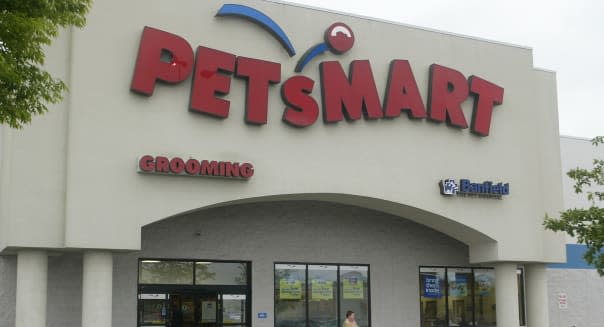Bye-Bye, Stock Market: Companies Going Private in 2014

Considering that it's largely a brick-and-mortar retailer in a world that's buying more goods online, PetSmart (PETM) has posted some very good fundamentals recently. Given that, it might be a tempting stock for an investor to own. But it's not going to be on the market much longer.
Under pressure from some of the private equity firms that own big chunks of it, the company has solicited bids for a sale, which will end its time as a stand-alone, publicly traded entity. Its venture into private waters is the latest in a series of such deals so far this year. Here's a look at several other companies that took (or are taking) themselves off the market in 2014.
CEC Entertainment
Even during its time on the high-visibility New York Stock Exchange, CEC Entertainment was not a familiar name. But the company's key property, the Chuck E. Cheese chain of hyperactive-themed restaurants aimed at kids, has been a well-known brand for years.
That might be why CEC Entertainment and financial adviser Goldman Sachs (GS) were able to find a wealthy buyer so quickly after announcing their intention to go private this past January. A mere week after that came to light, investment management firm Apollo Global Management (APO) offered $950 million plus roughly $370 million in debt assumption for the company.
%VIRTUAL-WSSCourseInline-538%As that offer represented an amount 25 percent or so higher than the stock's most recent closing price, CEC Entertainment readily accepted, and the deal closed in February.
The company is probably better off in Apollo's arms. Chuck E. Cheese's one-stop dining and entertainment model is looking a bit creaky next to the many options for fun available to 21st-century kids. At the time of the deal's announcement, the company's results were sagging, with sales and net profit both declining in recent periods.
Going private -- well, semi-private, as Apollo is a publicly traded entity -- reduces the pressure for the company to return to growth right away, and gives it a chance to restructure Chuck outside of the immediate glare of the stock exchange.
The Jones Group
Similarly to CEC Entertainment, the Jones Group is a relatively obscure name that holds recognized assets, namely mall fashion stalwarts Nine West and Anne Klein.
It was struggling to get those clothes and accessories on customers, however. Sales were slumping, its stock price was heading south, and debt was high. The company decided to rectify these problems by selling itself.
With the help of its financial adviser, Citigroup (C), it found a buyer in New York-based private equity concern Sycamore Partners. Sycamore agreed to pay $1.2 billion for the company and take on $1 billion in debt. The acquisition was completed in April.
This is familiar territory for the new owner. Among other deals, Sycamore had previously grabbed control of women's clothing specialist Talbots for $391 million in 2012 and youth-focused apparel purveyor Hot Topic in a roughly $600 million deal the following year.
In June, Sycamore announced its intention to chase after another young brand, Express (EXPR). The private equity operator had a nearly 10 percent stake in the company at the time; news of its interest lifted Express' stock price by over 20 percent, giving the retailer a market value of over $1.1 billion.
Tibco
Software company Tibco (TIBX) is a hardy survivor of the crazed dot.com stock frenzy of the late 1990s. These days, the company provides its services to big-name companies like Southwest Airlines (LUV) and Citigroup.
Unlike many of its vanished dot.com-era peers, Tibco has been consistently profitable. That bottom line has been choppy lately, however -- after netting $112 million in fiscal 2011 and $122 million the following year, the company posted a net profit of $84 million in 2013. Net income across the most recent two quarters has been significantly lower than in the preceding periods.
This didn't escape the market's notice. As of late September, the company's stock price was down by around 17 percent from its year-to-date peak.
So it was a good time for an interested party to make a deal. At that point, Tibco hanged a "sold" sign on its door, announcing that it had inked a $4.3 billion deal with professional tech investment house Vista Equity Partners. The arrangement, which includes the assumption of net debt, works out to a roughly 26 percent premium over its most recent closing share price.
Motley Fool contributor Eric Volkman has no position in any stocks mentioned. The Motley Fool recommends Goldman Sachs, PetSmart and Tibco Software, and it owns shares of Citigroup. Try any of our Foolish newsletter services free for 30 days. To read about our favorite high-yielding dividend stocks for any investor, check outour free report.


